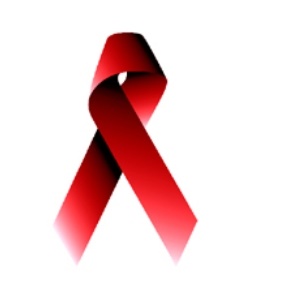
As many as two-thirds of new HIV infections could be prevented in gay and bisexual men if more men were tested for the virus, more were treated, and more who don't have HIV took medication to prevent infection, a new Dutch study estimates.
"More testing is essential, but it will be insufficient to make a meaningful change in the rate of new infections if all we do is focus on treating people who test positive," said Dr Ryan Westergaard, an assistant professor of infectious diseases at the University of Wisconsin School of Medicine and Public Health, who reviewed the findings but was not involved in the research.
Specifically, the study said new infections could fall dramatically if:
- Half of men at risk of HIV got tested each year
- All men diagnosed with HIV get treatment
- Half of the at-risk men without HIV take medication (Truvada) to prevent infection
Read: Why more people at risk of HIV should be taking Truvada
The study is published in Science Translational Medicine.
Despite advances in treatment and the introduction of HIV prevention through pre-exposure prophylaxis (PrEP) with Truvada, the number of new infections in gay and bisexual men has remained steady in such countries as Australia, the Netherlands, Switzerland and the United Kingdom, the researchers noted.
To better understand why new infection rates aren't dropping, researchers looked at medical records and blood tests from more than 600 gay or bisexual men from the Netherlands. The men had recently been infected with HIV.
The researchers used this information to try to figure out details about the men who had transmitted infections to those in the study.
"Like humans, each HIV strain is characterised by its own genetic code and like family pedigree," said study lead author Oliver Ratmann, a research fellow at Imperial College London in England. By understanding the histories of the strains in each person, he said, researchers can better understand where they came from.
Read: Aids is the leading killer of African teens
The researchers estimated that 71 percent of the men were infected by HIV-positive men who hadn't yet been diagnosed. Forty-three percent of men who transmitted an infection were in their first year with HIV, the study authors said.
If testing levels stayed the same but men immediately began taking medication to treat the virus, about 19 percent of new cases could have been prevented, the researchers estimated.
Get people on treatment
"What makes it even more challenging is that people are most highly contagious in the very early stages of infection," Westergaard said.
"Men at the highest risk for HIV with multiple and frequent partners are likely to transmit infection between the time they contract HIV and the next time they get tested. For this very high-risk subset, we essentially can't test people frequently enough to get people on treatment before they infect others," he noted.
The study authors also looked at another scenario: What if half of those at risk get tested each year, half of those who test negative take preventative drugs, and all of those diagnosed with HIV get treatment? In that case, the researchers estimated that 66 percent of the cases would've been prevented.
Read: What makes women vulnerable to HIV? Men, power and money, say youth
Westergaard said the study is impressive even though it has limitations. Among other things, the researchers couldn't conclusively determine details about the men who gave the infection to the study subjects. Instead, they're offering a "best guess", he said.
So, how might those in the HIV prevention and treatment field use this information?
While it's a good idea, Westergaard said, pushing for more preventive treatment through medication would represent a "paradigm shift" in some places where HIV testing is offered.
But, he added, "Every time someone who is at risk for HIV gets tested and receives a negative result, it is an opportunity to discuss and encourage adoption of effective HIV prevention strategies, which increasingly must involve PrEP."
Read more:
South Africa licenses anti-retrovirals to prevent HIV
Image from iStock



 Publications
Publications
 Partners
Partners











